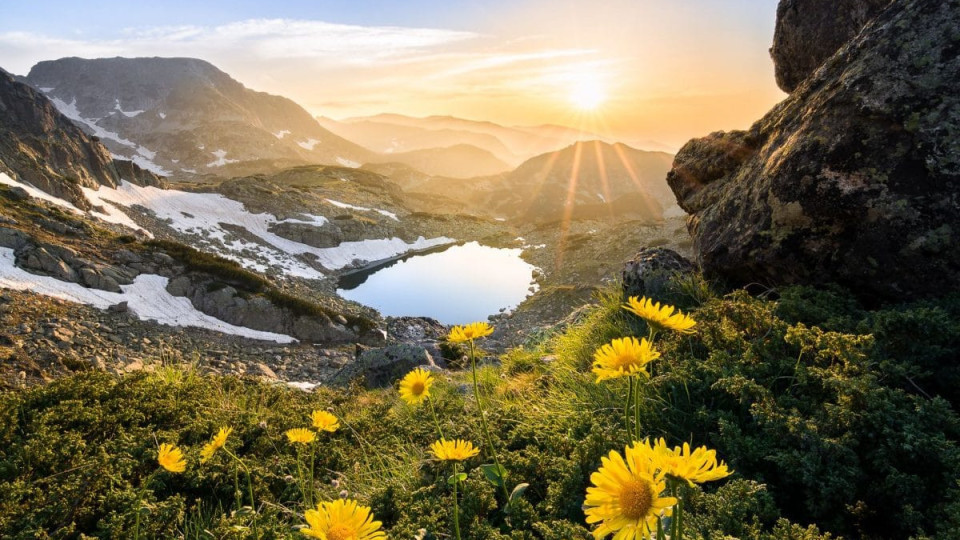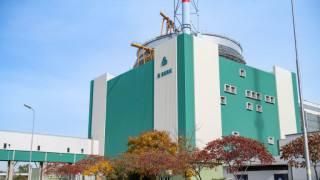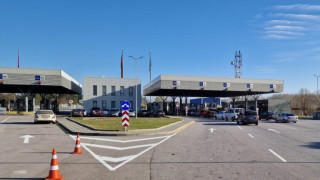A billboard opposing eco-extortion by green non-governmental organizations (NGOs) was recently erected in Galabovo. It features images of Toma Belev, co-chair of the "Green Movement," and another eco-activist, Petko Kovachev, a former co-chair of the party. Both are prominent advocates for shutting down the thermal power plants (TPPs) in the Maritsa Basin. Despite the fact that TPPs are the backbone of Bulgaria's energy independence and employ 50,000 people, these environmentalists are pushing for their closure. While part of the "We Continue the Change - Democratic Bulgaria" coalition, the "Green Movement" secured a commitment in the National Recovery and Resilience Plan to shut down all TPPs in Bulgaria by 2025.
This is the second such billboard in two weeks, following one along the road between Simitli and the Kresna Gorge with the message, “Thank them for the traffic jams,” accompanied by the faces of Toma Belev, Borislav Sandov, and Andrey Kovachev.
At least 50 more billboards, like those in the Kresna Gorge and Galabovo, are needed to expose the scale and scope of nationally significant projects blocked by green party activists and NGOs funded by foreign and European contracts.
Timeline of Major Infrastructure Projects Blocked by Environmentalists:
-
Completion of the "Struma" Highway through the Kresna Gorge:
Over 20 years, environmentalists have sabotaged the completion of the "Struma" Highway through the Kresna Gorge. During this time, more than 50 lawsuits were filed, along with 64 complaints to the European Commission, the Bern Convention, and other European institutions, seeking to halt construction. Attempts were made through MEP Radan Kanev to push a petition in the European Parliament for the permanent cancellation of the highway, citing harm to biodiversity. At the same time, Kanev appointed Zaritsa Georgieva Dinkova, a former tourism minister and member of the Green Movement, as his accredited assistant. She prepared the petition documentation for submission to the EU structures. Despite these efforts, the European Parliament refused to even review the petition. This sabotage has had a heavy toll: 74 fatalities and 400 injuries in just 16 kilometers of the Kresna Gorge. -
The Shipka Tunnel:
The Shipka Tunnel, another project of national importance, has been delayed for over 20 years due to environmental objections. The greens oppose it because it would pass through the "Bulgarka" Nature Park and Natura 2000 bird directive zones. Despite lobbying for a more expensive tunnel with two 7.4-kilometer tubes, green organizations have actively worked to sabotage shorter, more feasible projects. In 2022, Deputy Minister Toma Belev approved a management plan for the "Bulgarka" Nature Park that placed the proposed tunnel route in a strict reserve zone, prohibiting construction. Legal challenges against this decision have been successful, paving the way for the tunnel's construction, but only after a 15-year delay. -
The Petrohan Tunnel:
The Petrohan Tunnel, critical for national security and road safety, has been delayed for 25 years. Attempts to move forward with the project were made in 2008, 2013, and 2017, but environmental objections stalled progress. In 2022, Borislav Sandov and Toma Belev rejected a proposed route due to its crossing of three Natura 2000 zones. They argued it would harm habitats and violate bird directives, citing the habitat of the alpine newt, a small amphibian found in many areas with deciduous forests and water. Strict environmental procedures and potential NGO lawsuits mean the Petrohan Tunnel is unlikely to begin construction within the next 10 years.
The Cost of Green Sabotage:
The delays caused by green NGOs have affected numerous other projects of national significance, including the "Black Sea" Highway, the diversification of gas connections, tourism infrastructure, and hydropower projects. These blockages have resulted in billions of leva in damages, jeopardized lives, and hindered Bulgaria's development.








Коментирай